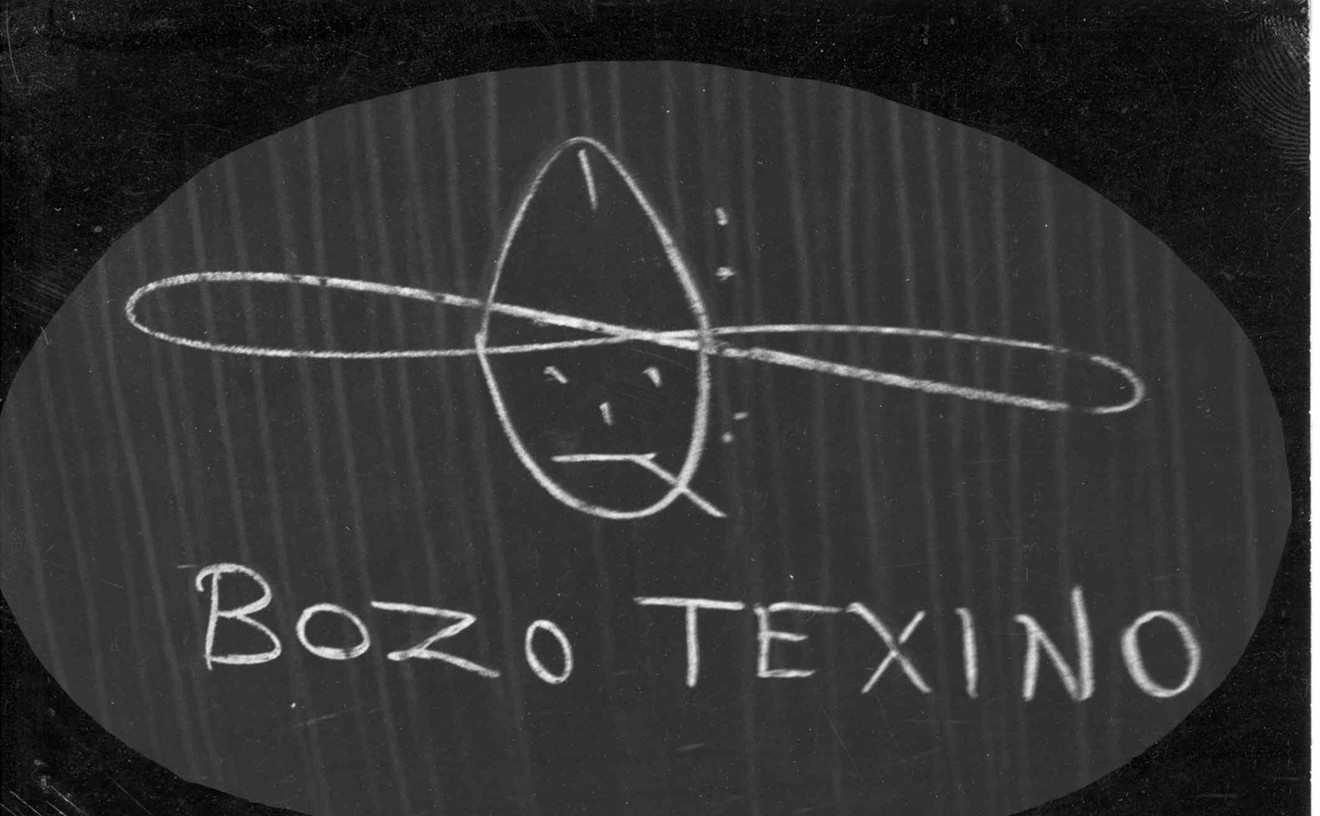When asked if either the digital revolution in film or the demise of old-school media had affected his career, film critic Howie Movshovitz answers succinctly: “No.” For decades, the award-winning writer, broadcaster, curator, educator and filmmaker has exposed the world of film to several generations in the region. And today he continues to do so, offering a screening of Jim Jarmusch's first feature, the 1984 deadpan comedy Stranger Than Paradise at his long-running Tattered Cover Classic monthly film series on Sunday, August 2 at Denver’s Sie FilmCenter.
In the movie, sad-sack hipsters Willie (John Lurie) and Eddie (Richard Dyson) host Willie’s visiting Hungarian cousin Eva (Eszter Balint), sparking comedic complications and road trips to Cleveland and Florida – both of which look just as depressing and ramshackle as Willie’s cluttered NYC apartment. Wry and offbeat, Stranger proved that independent film didn’t have to be synonymous with self-indulgent, tiresome fare.
“I like it,” Movshovitz says. “It’s a terrific film. It’s not shown very much.” He praises the director’s “terse, understated” quality. Movshovitz does not waste words, either. His precise, measured speech is a reflection of his clear, fast-flowing writing style. Writing for the dailies, giving film reviews on-air at KUNC, he learned long ago how to pack maximum meaning into minimum space. Despite all the changes in cinema and the critical mechanism, he is still a major voice in the film scene.
Movshovitz is part of that charmed generation of lucky film critics that came into being during the great American New Wave of the ‘60s and ‘70s. (He met a guy while he was in grad school in Chicago who helped spark his interest in movies – a guy named Roger Ebert.) In addition to his reams of critical work, he’s the director of film education at the College of Arts & Media at the University of Colorado Denver. He also helped found the Starz Film Center, and steers the Denver Silent Film Festival into its fifth incarnation next spring.
For Movshovitz, Stranger Than Paradise holds a special place in his mind, as part of an extraordinary year for him in cinema. “There were fewer film festivals, so each festival mattered more,” he explains. “Stranger Than Paradise played the first year I went to Cannes, and that and Paris, Texas both won big awards. To be there for their world premieres was thrilling. Then, at the end of the summer, I went to the Telluride Film Fest – and there was a softball game in the town park, and it was the crew of Paris, Texas versus the crew of Stranger Than Paradise. And Werner Herzog was the umpire!”
The Tattered Cover series, in place since 1998, has covered every kind of film — the only criterion being quality. It’s another one of those modest but vital events, steady as a heartbeat, that keeps the classics alive. “I love this series," Movshovitz says. "I did it free for a really long time, and now I think we only charge a buck. I don’t think that’s too onerous."
He relishes the continuing opportunity to play a worthy film on the big screen in front of a crowd. It’s a pleasure he fears might be endangered.“I would hate for people to get used to thinking that film is something you see on TV or a computer,” he says. “The big screen looks good. In terms of being a critic, the downside of digital is that the distributor sends a video copy or a download or a password to each person, at home. A critics’ screening, with just a few people in it, even that little audience makes a difference. It’s remarkable.”
However, he sees a definite upside as well. “In teaching, digital is an enormous gain,” he says. “The prints were iffy and the sound was poor, especially with silent film, which is what I tend to do. And there was no accompaniment. You had to get tough to watch silent films. Now I can show digitally restored prints, vastly improved, with a music track. We’re finally back to experiencing these films as intended.”
When screening in a theater, Movshovitz prefers film to digital. His Denver Silent Film Festival wrangled celluloid prints for all but one short film this year, and he employs the top-notch silent-film accompanists based in Denver – Hank Troy, the Mont Alto Motion Picture Orchestra, Donald Sosin.
Movshovitz’s relationship with digital is not so much love/hate as like/distrust. “No digital format is archival,” he says. “It’s a question of accessibility. What happens one day when we can’t open a file and we lose the last copy of a film?”
Movshovitz’s monthly screenings anticipated the present-day repurposing of movie theaters, forcing them to innovate and turning them into homes for special events, live broadcasts and education, as well as sanctuaries for pre-digital projection. Increasingly, a movie theater will become a refuge for those who remember that cinema is an art that needs a shared communal response to really work. Thanks to Howie Movshovitz, a steady stream of dynamic films that demand the larger dimensions of the big screen, as well as an inquisitive, eager pack of cinemaniacs in the house, have a home.
Stranger Than Paradise, hosted by Howie Movshovitz, will be presented at 1 p.m. Sunday, August 2 at the Sie FilmCenter, 2510 East Colfax Avenue, as part of the Denver Film Society’s monthly Tattered Cover Classic film series. For tickets and information, visit denverfilm.org.
[
{
"name": "Air - MediumRectangle - Inline Content - Mobile Display Size",
"component": "12017618",
"insertPoint": "2",
"requiredCountToDisplay": "2"
},{
"name": "Editor Picks",
"component": "17242653",
"insertPoint": "4",
"requiredCountToDisplay": "1"
},{
"name": "Inline Links",
"component": "18838239",
"insertPoint": "8th",
"startingPoint": 8,
"requiredCountToDisplay": "7",
"maxInsertions": 25
},{
"name": "Air - MediumRectangle - Combo - Inline Content",
"component": "17261320",
"insertPoint": "8th",
"startingPoint": 8,
"requiredCountToDisplay": "7",
"maxInsertions": 25
},{
"name": "Inline Links",
"component": "18838239",
"insertPoint": "8th",
"startingPoint": 12,
"requiredCountToDisplay": "11",
"maxInsertions": 25
},{
"name": "Air - Leaderboard Tower - Combo - Inline Content",
"component": "17261321",
"insertPoint": "8th",
"startingPoint": 12,
"requiredCountToDisplay": "11",
"maxInsertions": 25
}
]











